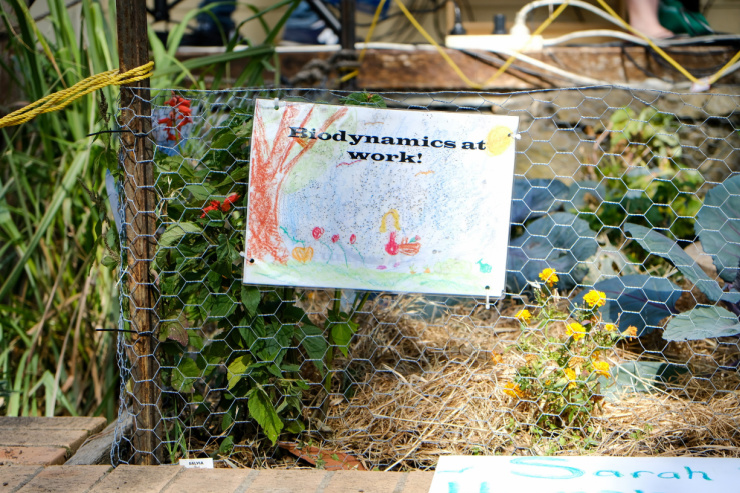There are many problems with “organic” food. If you’re looking to improve the healthfulness of the food you eat, it’s time to understand the meaning of the word biodynamic, and how it differs from organic when it comes to food. At Mercola.com, Dr. Joseph Mercola discusses biodynamic food, writing:
Editor’s Note: This article is a reprint. It was originally published October 15, 2017.
Eating real, nonprocessed food is the key to sustaining good health, but even when it comes to whole food, its quality is largely determined by how it was grown. Certified organic food is recommended to avoid toxic contaminants such as pesticides. But even organic foods may be lacking in important nutrients if grown in nutrient-poor soils.
To truly build good topsoil, you have to implement regenerative farming methods, many of which are not automatically required by organic standards.
Biodynamic certification, which is a step above organic, is the topic of today’s discussion with Elizabeth Candelario, managing director for Demeter,1 a global Biodynamic certification agency. Candelario spent most of her career in the wine industry. While she was working as a marketing director for a winery in Sonoma County, the winery decided to transition from conventional to Biodynamic farming, which is how her interest in Biodynamics began.
“Here in the United States, the wine industry was the early adopter in Biodynamic,” Candelario says. “The reason for that was really twofold. One is winemakers couldn’t help but notice that the best wines in the world were coming from Biodynamic vineyards, wineries like Domaine de la Romanée-Conti and Zind-Humbrecht. Another reason is that a lot of wineries, at least back in the day, were family-owned …
You had winery families that were interested in passing that winery down from one generation to the next. The best example of that is the Frey Vineyards up in Mendocino County, where they literally have four generations of family living [there] … They were really thinking about the ecological aspect of what they were doing and how they were farming. So, it wasn’t unique that the winery I worked at chose [Biodynamic] …
That experience — I not only witnessed the transformation of the estate, but I also witnessed a transformation in the people we were working with — was, for me, emerging between my career [in] the wine industry and my interest in social mission … I joined Demeter about almost 10 years ago.”
The History of Biodynamic Farming
Organic is well-known in the U.S. market. Biodynamic is a fairly unknown concept, although its history spans back nearly nine decades. Biodynamic farming is a spiritual-ethical-ecological approach to agriculture initially developed by Austrian scholar Rudolf Steiner,2 Ph.D. (1861-1925).
It’s an approach that can provide far superior harvests compared to conventional chemical-based agriculture, while simultaneously healing the Earth. As organic farming, the concept of biodynamic emerged in response to the industrialization of agriculture. Candelario explains:
“Steiner was a polyglot. He was a very smart man. He was interested in economics and social systems. He’s most known here in the U.S. as the founder of Waldorf education. Toward the end of his life, he was approached by a group of farmers that were very concerned about what they were seeing on their farms. This was back in the 1920s …
After World War I, chemical companies got very crafty repurposing nitrogen that had been used to make bombs as fertilizer, and nerve gas as synthetic pesticides. They had stockpiles of these chemicals and realized they had application on farms. This was around the time of the industrialization of the manufacturing model. The idea was that you wanted to produce the highest output at the lowest cost.
It’s not surprising that that kind of industrial view also influenced the way people started thinking about their farms. This idea of importing things from the outside, these natural resources, to increase production really mirrored that industrial model. But what was happening was that farmers were really beginning to notice that their seeds weren’t germinating.
Their animals weren’t as healthy. The food wasn’t as good. Because of that, they approached Steiner and asked him for his perspective on what was happening on their farms. He answered them in what is now referred to as ‘The Agriculture Course or The Foundations for a Renewal of Agriculture’ — a series of lectures he delivered.”
Read more here.
If you’re willing to fight for Main Street America, click here to sign up for the Richardcyoung.com free weekly email.





